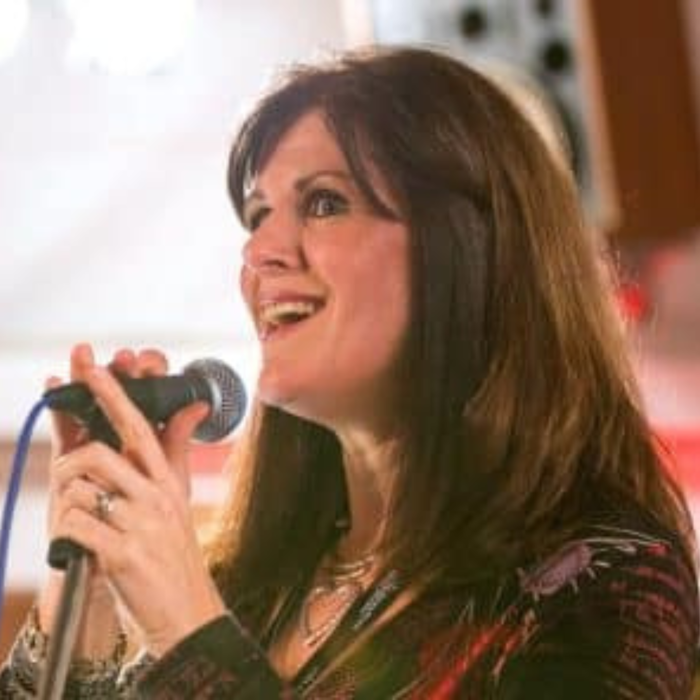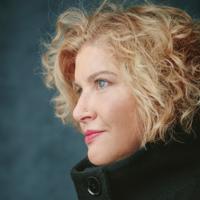Biofeedback in Vocal Pedagogy: Real-time success using mobile application technology
Thursday 15th April 2021, 5:00 PM - 7:00 PM (London Time)
Biofeedback in Vocal Pedagogy:
Real-time success using mobile application technology
Heidi Moss Erickson, B.A.Bio, B.Mus.Voice, M.Sci.
Advancements in mobile technology have revolutionized nearly every sector of our lives. Like a virtual fingerprint of our individual preferences, the seemingly endless array of mobile apps can define and enhance our interests. Music applications are a large part of this industry, and new generations of singers use their mobile devices to listen to songs, record their lessons, read, and annotate scores. Newer analysis and recording applications geared towards advanced musicians also include various forms of spectrograms for acoustic visualization.
However, spectrographic technology used by voice scientists and pedagogues has not fully crossed over into the mainstream population of students and teachers. One reason for the lack of pedagogical use is that acoustic computer software has been geared primarily towards research and academic-oriented pursuits. Acoustic software can be complicated to learn and tedious to analyze. In addition, the traditional teacher/student paradigm, proven successful for centuries, is a very effective way of teaching voice. Thus, there can be resistance to introduce new forms of pedagogic analysis in an already well-functioning studio.
However, the integration of technology for targeted purposes can aid both the student and the teacher in many important ways. In most instances it leads to increased accuracy in a shorter amount of time. It also allows the student to self-check particular directives in their own individual practice. Identifying beneficial areas of biofeedback is critical in determining where these tools can have maximum effectiveness.
‘How we practice efficiently and effectively’ is fast becoming one of the holy grails in our field. Visual biofeedback not only complements all of these processes, it also enhances both the speed and the output of targeted motor coordination.
The most critical element of introducing this technology is to identify relevant pedagogical questions that can easily be solved via visual biofeedback. Ideally, these approaches would supplement traditional methods (i.e. teacher/student; auditory/ kinesthetic feedback), but allow progress to happen faster and enhance understanding of processes.
This lecture will teach the science of biofeedback, how it relates to singing, and demonstrate the value of biofeedback for specific pedagogical aims.
Sample biofeedback mobile app readout:

Heidi Moss Erickson
Heidi Moss, is a Bay Area performer, educator, and scientist. Noted for her “rich and radiant soprano” (Edward Oriz, Sacramento Bee) has performed on national and international stages...
Sorry, this is an archived short course...
We have plenty of upcoming short courses coming soon. See details of some of them below or look at the full list of short courses.


Wednesday 2nd July 2025
2:00 PM - 4:00 PM
(London Time)
The identity politics of accent learning!

Jenru Wang
Jenru Wang has an MFA in Voice Studies with distinction from The Royal Central School of Speech and Drama in London - in this session, he will begin to explore the complexities accent coaches might face in their work, examining the intersection of language, identity, and cultural sensitivity. Participants will explore how to navigate challenging situations in different contexts and understand what to do—and avoid—when working with diverse clients and materials.


Thursday 3rd July 2025
5:00 PM - 7:00 PM
(London Time)
Vocal “Decathletes” – inside the hidden world of Session Singing!

Kim Chandler
What is a session singer? Officially it’s a freelance, short-term “singer for hire” brought in to be part of a live or recorded musical project. However, it’s more generally understood to be the “behind-the-scenes” singer who is regularly booked for paid recording work. The type of work (and pay) varies a lot. Session singing is a side of the music industry that is largely hidden from the public and isn’t easy to find out much about, even online. Join Kim Chandler as she unpicks this topic, based on 35 years of session singing!

Monday 7th July 2025
2:00 PM - 4:00 PM
Tuesday 8th July 2025
2:00 PM - 4:00 PM
Wednesday 9th July 2025
2:00 PM - 4:00 PM
Friday 11th July 2025
2:00 PM - 4:00 PM
Monday 14th July 2025
2:00 PM - 4:00 PM
Tuesday 15th July 2025
2:00 PM - 4:00 PM
Wednesday 16th July 2025
2:00 PM - 4:00 PM
Friday 18th July 2025
2:00 PM - 4:00 PM
(London Time)
Introduction to statistics and working with quantitative data for Voice Professionals: 8-Session Online Bootcamp

Dr David Cane
This certificated statistics course is ideal for individuals interested in laying a solid foundation in quantitative research methods. By focusing on essential statistical principles, you will be equipped with the tools to understand and apply quantitative research techniques effectively. Statistics is a crucial component of quantitative research; mastering it will enable you to grasp quantitative methods more confidently and precisely.
